Tamara Press, Olympic athletics champion whose career was overshadowed by doubts about her gender – obituary
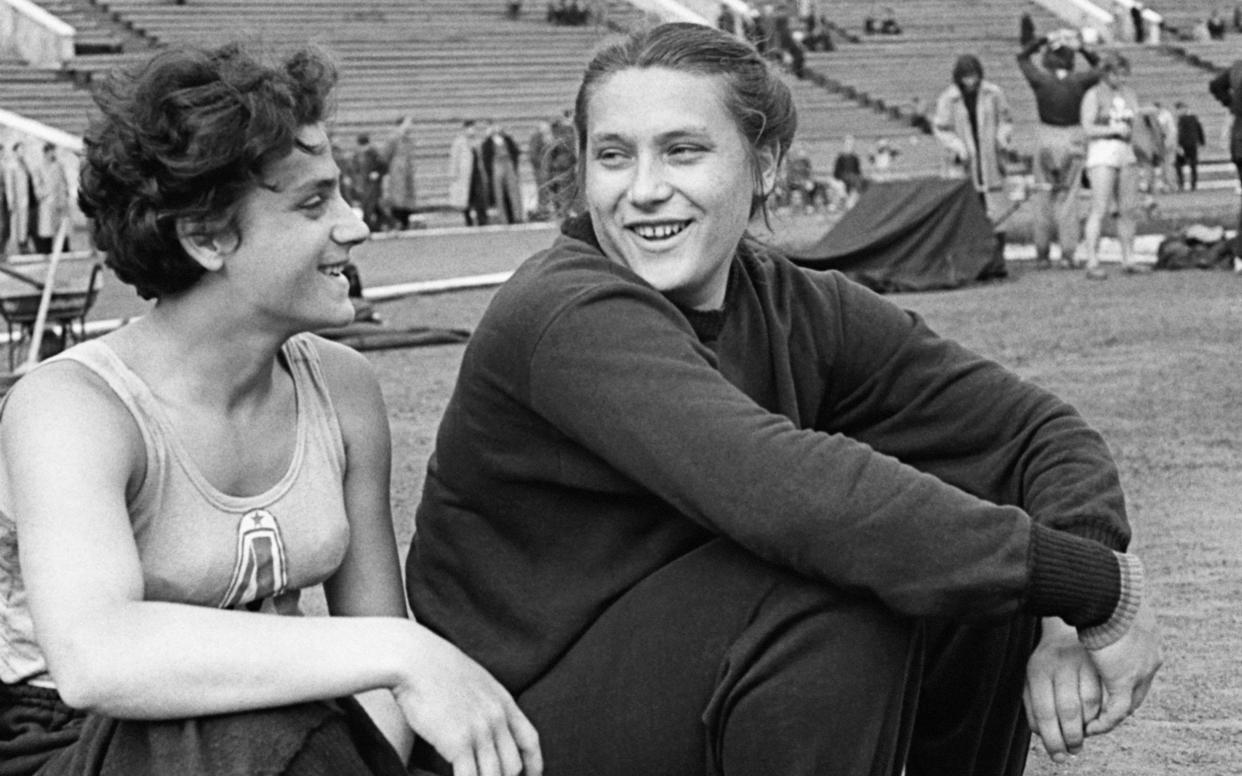
- Oops!Something went wrong.Please try again later.
- Oops!Something went wrong.Please try again later.
Tamara Press, the former Soviet athlete, who has died aged 83, won gold medals at the 1960 and 1964 Olympics; but her career, like that of her younger sister Irina, was dogged by speculation about her gender, an enigma left unresolved when both sisters abruptly withdrew from competition in 1966.
In Rome in 1960, the Press girls became the first sisters to win Olympic gold medals, the incredibly muscular Irina winning the 80-metre hurdles a full three strides ahead of her nearest competitor and the even more impressive-looking Tamara winning the shot put by nearly five feet while taking a silver in the discus.
In Tokyo in 1964, Tamara Press went one better, winning both the discus and the shot put, setting Olympic records in both events. Irina took gold in the pentathlon, setting a new world record of 5,246 points, more than 200 ahead of Britain’s Mary Rand. Between them, the sisters set 26 world records.
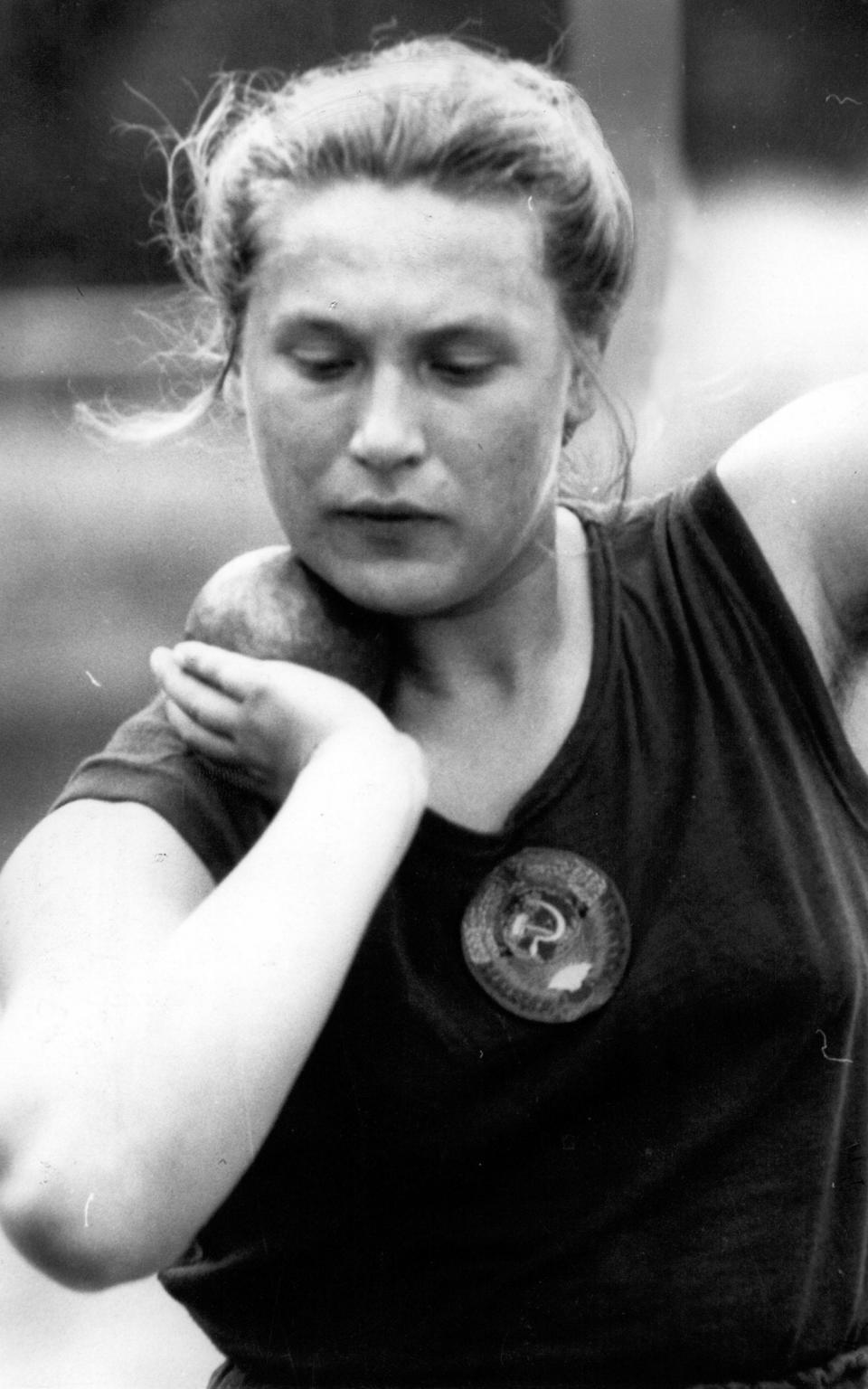
They were not the first athletes to prompt questions about gender. Dora Ratjen, fourth in the women’s high jump in Berlin in 1936, was later determined to be male or intersex, while Stanislawa Walasiewicz, who won gold in the women’s 100m in Los Angeles in 1932, turned out at her death to have had “primary male characteristics”.
Concerns that some women athletes were not quite as feminine as they declared in the Olympic registry intensified in the Cold War period as the Soviet Union (and its satellites in eastern Europe) came to dominate the medal tables, the USSR topping the Americans in the winter and summer medal counts in 1956, 1960 and 1964 while producing female athletes of unusual and surprising stature.
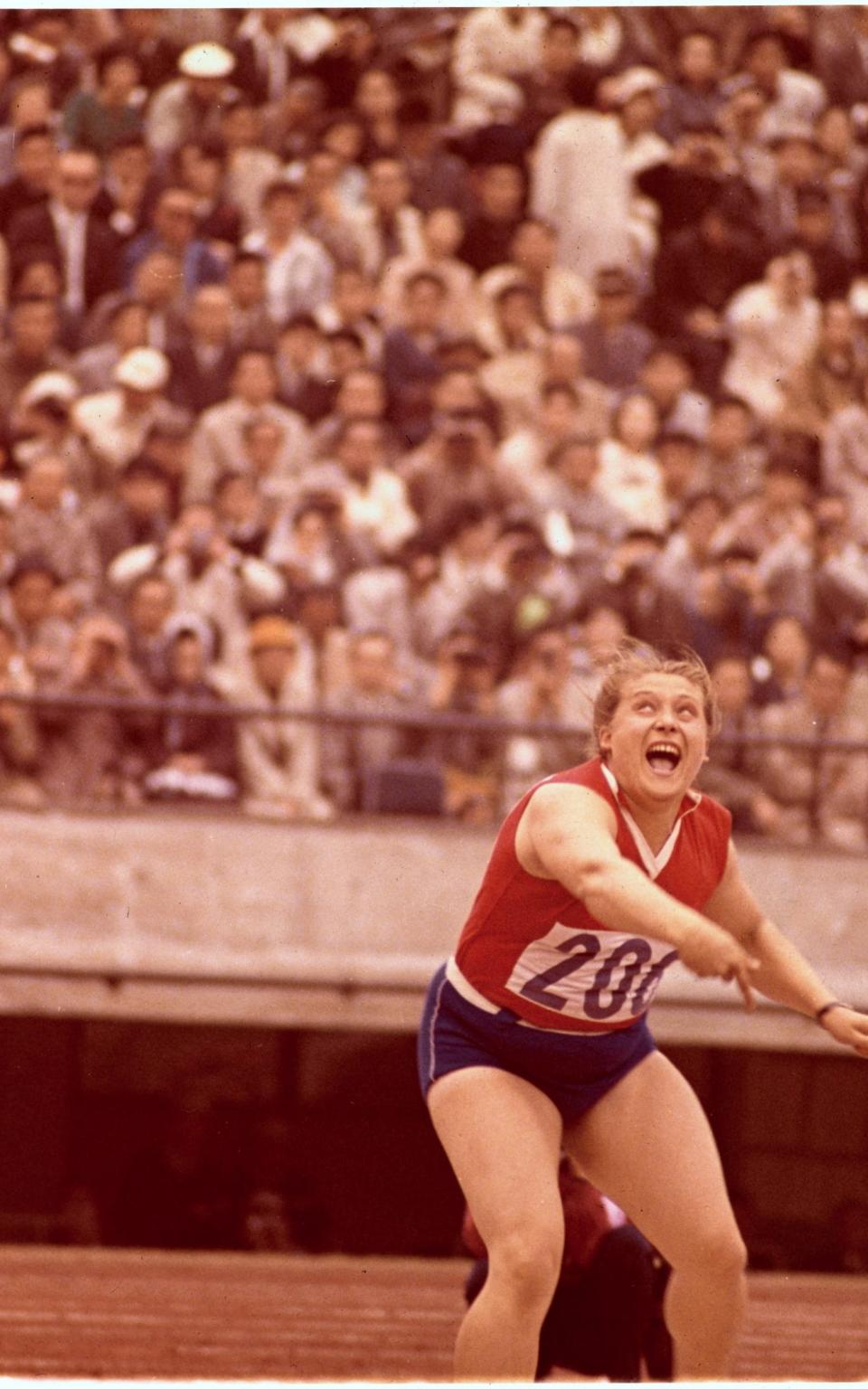
Resentment and suspicion focused on the Press sisters, who were disparaged in the western press as “Russian muscle molls” or the “Press Brothers”, one reporter in the New York Times commenting that Tamara was “big enough to play tackle for the Chicago Bears”.
Attention was drawn to her deep voice and there were suggestions that she needed to shave in the mornings. Some American rivals referred to her as “Ivan”.
The rumours surrounding Irina and Tamara, including claims that they were hermaphrodites, men in disguise, or had been injected with male hormones, heightened when the two abruptly dropped out of the 1966 European Athletics Championships in Budapest, the first international contest to require gender testing of all participants.
They cited their mother’s illness as the reason, but negative speculation persisted and increased further when other top Iron Curtain female athletes pulled out of the competition or failed to turn up.
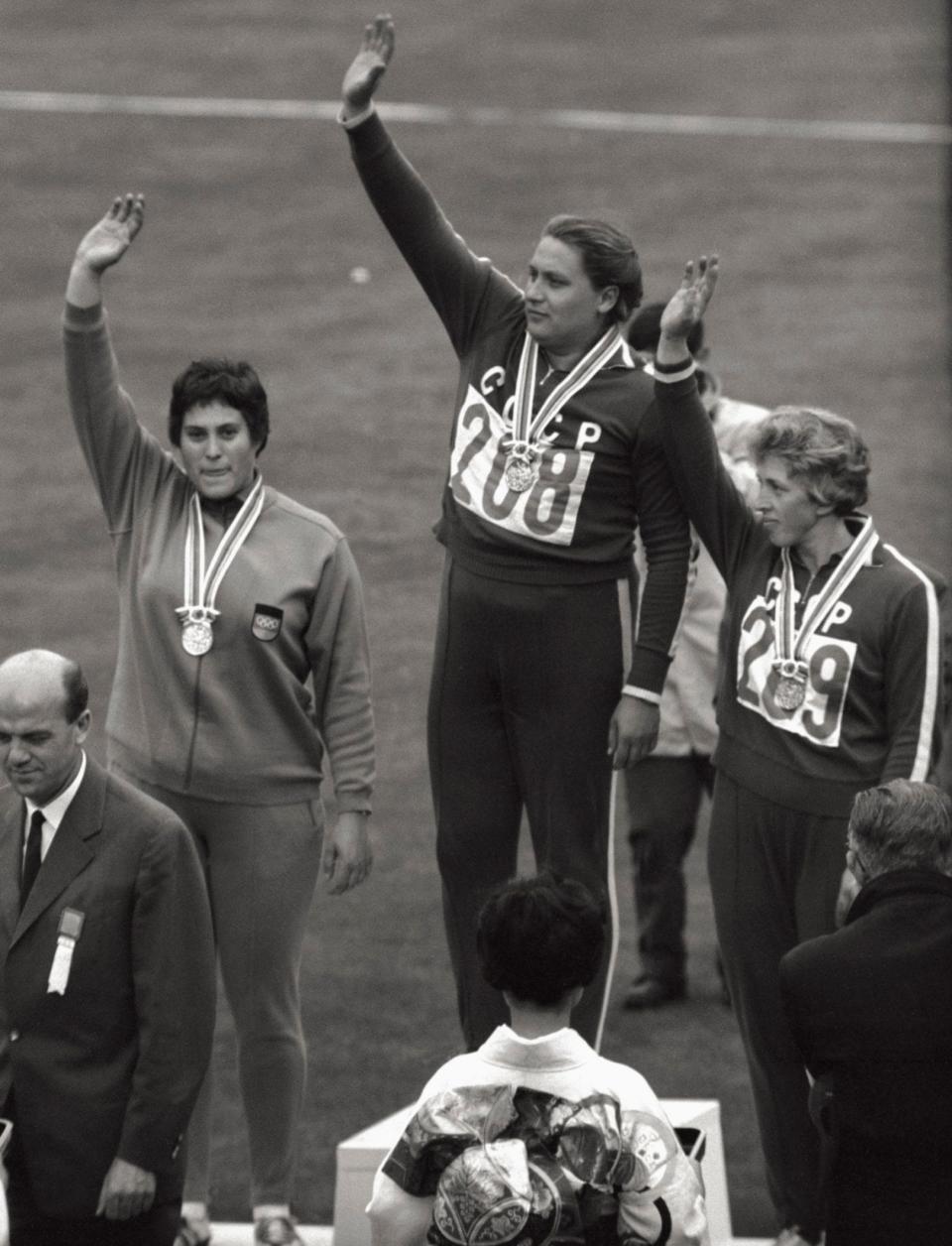
A year later Tamara Press announced her retirement, explaining that she had devoted more than 10 years of her life to sport and wanted to cede her place to younger sportswomen.
Tamara Natanovna Press was born to Jewish parents in Kharkov, Ukraine, on May 10 1937, nearly two years before her sister Irina. While their father died fighting in the Second World War, they and their mother survived the German invasion, taking refuge in Samarkand, and after the war the sisters began to display their athletic prowess.
In 1955 Tamara Press moved to Leningrad to train under Viktor Alekseyev, a well-known Soviet track and field coach to whom she gave much of the credit for her victories. “He was a genius,” she told an interviewer in 1996. “All of his students should understand that 50 per cent of our success is [due to him].”
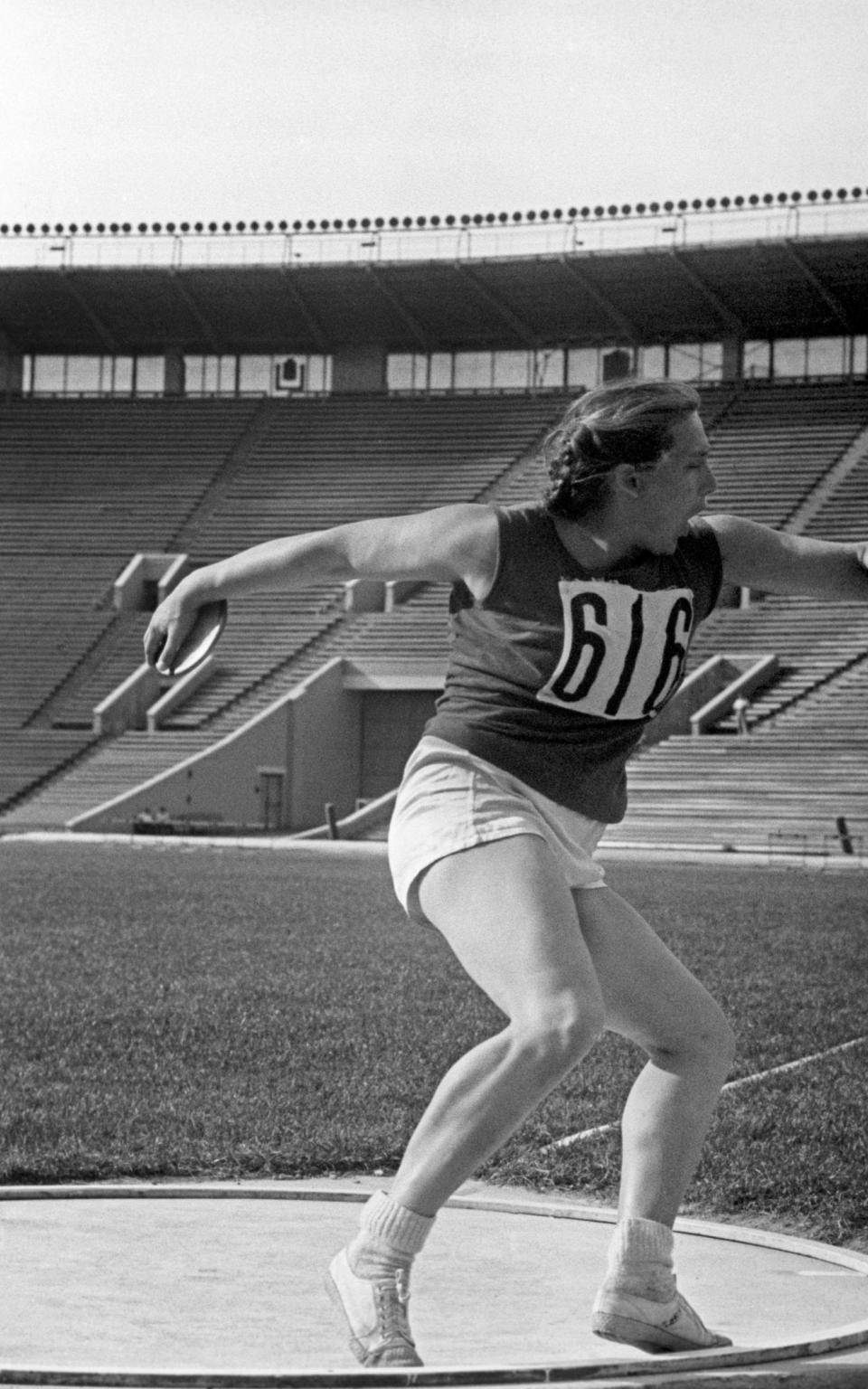
The sisters made their international debuts at the 1958 European Championships in Stockholm, Tamara winning gold in the discus and a bronze in the shot put. Between 1959 and 1965 she set 11 world records, five in the shot put and six in the discus.
Despite all the unanswered questions surrounding her Olympic victories, Tamara Press remained a popular sporting figure in Russia. She was proud of her achievements, observing in 1996: “Only those who have moral strength are able to gain victory. The moral idea [of the Olympics] is to make the homeland glorious in the world.”
Not much is known about the Press sisters’ subsequent careers, though one website suggests that Irina joined the KGB while Tamara became a civil engineer. She also worked as an athletics coach.
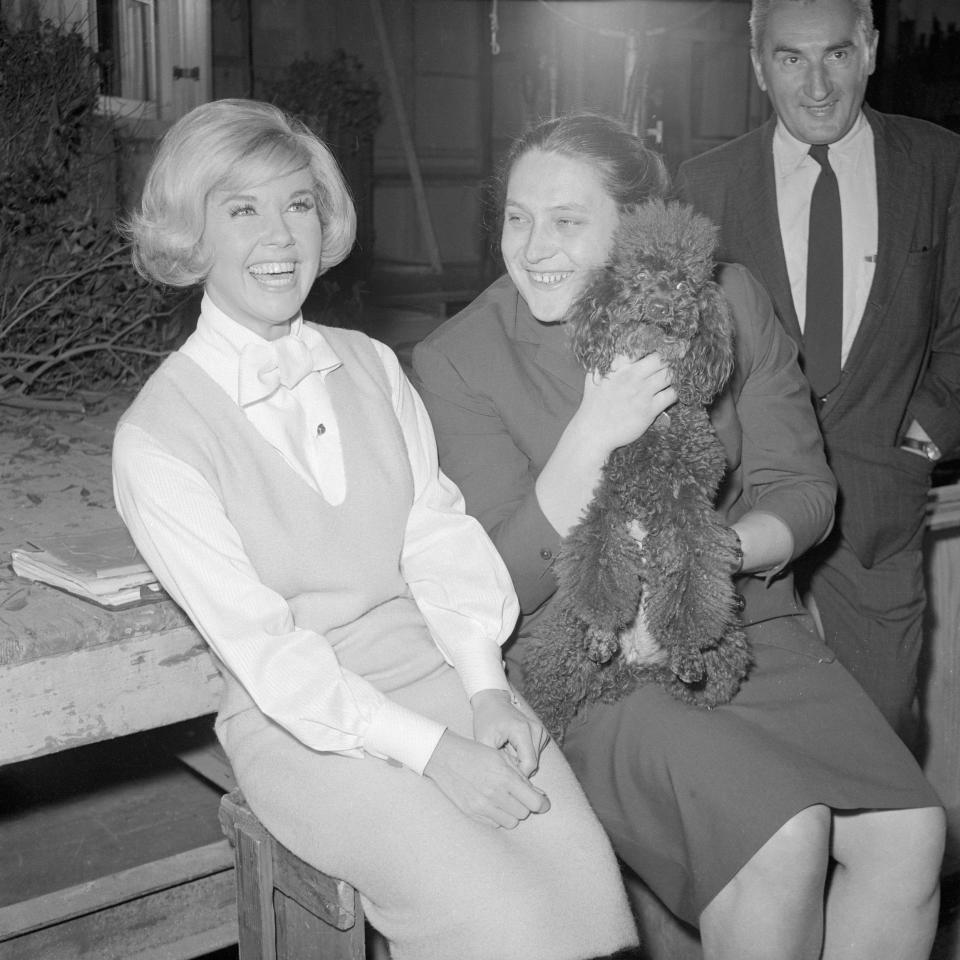
After the end of communism, she became a strong supporter of Boris Yeltsin, campaigning for him in the Russian presidential elections of 1996. She also served as vice president of the Physical Culture and Health Fund, a charity that provides material assistance to promising Russian athletes.
She was awarded the Order of Lenin in 1960, the Order of the Badge of Honour in 1964 and the Russian Order of Friendship in 1997. In 2012 Russia’s president Vladimir Putin congratulated her on her 75th birthday. “You earned the respect of opponents and the love of millions of fans,” he told her.
Irina Press died in 2004.
Tamara Press, born May 10 1937, died April 26 2021

